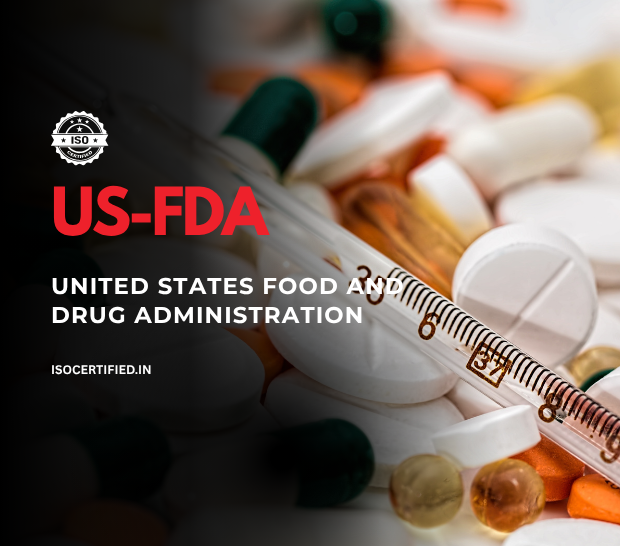- Globally Recognized Certification
US-FDA - United States Food and Drug Administration
US-FDA Certification confirms that facilities, products, and processes comply with Food and Drug Administration regulations governing safety, efficacy, and quality standards for items entering the United States market. This certification validates adherence to stringent federal requirements protecting public health across food, pharmaceutical, medical device, and cosmetic industries.
Request A Free Quote
What is US-FDA – United States Food and Drug Administration Certification
US-FDA Certification is a regulatory compliance verification demonstrating that manufacturers meet federal standards enforced by the United States Food and Drug Administration for products including food, drugs, medical devices, biologics, cosmetics, and tobacco. This certification involves facility registration, product listing, pre-market approvals or clearances, good manufacturing practice (GMP) compliance, and regular FDA inspections verifying adherence to quality systems, sanitation standards, labeling requirements, and safety protocols. FDA certification ensures products are safe, effective, properly labeled, and manufactured under controlled conditions meeting federal quality standards.
The certification process varies by product category, ranging from facility registration for food establishments to rigorous Pre-Market Approval (PMA) for high-risk medical devices and New Drug Applications (NDA) for pharmaceuticals. Certified organizations implement comprehensive quality management systems, maintain detailed batch records, conduct stability testing, establish recall procedures, and submit adverse event reports. FDA compliance requires ongoing vigilance through internal audits, corrective action systems, supplier controls, and readiness for unannounced FDA inspections that assess continued conformance with regulatory requirements.

- Benifits
Key Benefits of US-FDA Certification
This certification provides mandatory access to the lucrative US market, ensures consumer safety, enhances international credibility, and protects businesses from regulatory penalties, product seizures, and legal liability.
US Market Authorization
Gain legal permission to manufacture, import, and sell regulated products in the United States, the world's largest consumer market.
Enhanced Global Recognition
Leverage FDA approval as internationally respected quality benchmark that facilitates market entry and builds credibility in other countries.
Consumer Safety Assurance
Demonstrate commitment to public health through compliance with rigorous safety, efficacy, and quality standards protecting end users.
Regulatory Risk Mitigation
Avoid product detentions, import refusals, warning letters, consent decrees, and criminal prosecution resulting from non-compliance with federal
- Standard Process
Your Path to ISO Certification
Four straightforward steps to achieve ISO certification: consultation, documentation, payment, and certificate delivery—all managed remotely for your convenience.
Free Consultation
Connect with our ISO experts to discuss your certification needs and requirements.
E-mail Documents
Submit your organization's documents and information securely via email.
Make Payment Online
Complete your payment conveniently through our secure online payment gateway.
Get ISO Certificate
Receive your internationally recognized ISO certification upon successful audit completion.
- Which Industries?
Who Needs This
Manufacturers, importers, distributors, and exporters of FDA-regulated products destined for US markets require this certification. Food producers, pharmaceutical companies, medical device manufacturers, and cosmetic producers must meet FDA compliance requirements.
Pharmaceutical & Drug Manufacturing
Medical Devices & Equipment
Food & Beverage Processing
Cosmetics & Personal Care
- Ongoing Requirements
Compliance & Maintenance
Post-certification, organizations must fulfill ongoing requirements including annual surveillance audits, internal reviews, and recertification to maintain their ISO certificate validity.
Annual Surveillance Audits
Certification bodies conduct yearly audits to verify continuous compliance with ISO standards and ensure your management system remains effective and up-to-date.
Recertification Every 3 Years
Complete recertification audit required every three years to renew your ISO certificate and demonstrate sustained commitment to quality management excellence.
Internal Audits & Reviews
Regular internal audits and management reviews must be conducted to monitor performance, identify improvements, and prepare for external certification audits.
Documentation & Training Updates
Maintain current documentation, update procedures for process changes, and provide ongoing training to employees on ISO requirements and their responsibilities.
